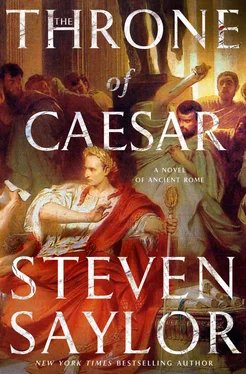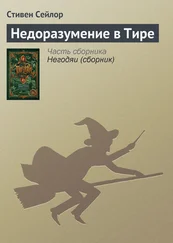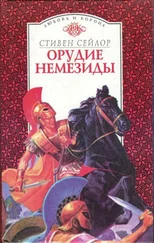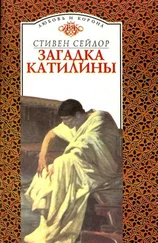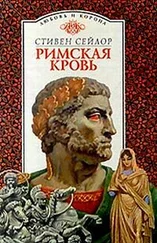Стивен Сейлор - The Throne of Caesar
Здесь есть возможность читать онлайн «Стивен Сейлор - The Throne of Caesar» весь текст электронной книги совершенно бесплатно (целиком полную версию без сокращений). В некоторых случаях можно слушать аудио, скачать через торрент в формате fb2 и присутствует краткое содержание. Год выпуска: 2018, Издательство: St. Martin's Press, Жанр: Исторический детектив, на английском языке. Описание произведения, (предисловие) а так же отзывы посетителей доступны на портале библиотеки ЛибКат.
- Название:The Throne of Caesar
- Автор:
- Издательство:St. Martin's Press
- Жанр:
- Год:2018
- ISBN:нет данных
- Рейтинг книги:5 / 5. Голосов: 1
-
Избранное:Добавить в избранное
- Отзывы:
-
Ваша оценка:
- 100
- 1
- 2
- 3
- 4
- 5
The Throne of Caesar: краткое содержание, описание и аннотация
Предлагаем к чтению аннотацию, описание, краткое содержание или предисловие (зависит от того, что написал сам автор книги «The Throne of Caesar»). Если вы не нашли необходимую информацию о книге — напишите в комментариях, мы постараемся отыскать её.
The Throne of Caesar — читать онлайн бесплатно полную книгу (весь текст) целиком
Ниже представлен текст книги, разбитый по страницам. Система сохранения места последней прочитанной страницы, позволяет с удобством читать онлайн бесплатно книгу «The Throne of Caesar», без необходимости каждый раз заново искать на чём Вы остановились. Поставьте закладку, и сможете в любой момент перейти на страницу, на которой закончили чтение.
Интервал:
Закладка:
As he walked up the steps, he spotted me, and seemed about to speak—to challenge me?—when suddenly I heard a voice shout his name: “Cinna! Look, there he is! It’s Cinna!”
I looked down at the public square in front of the temple and saw a small but very angry-looking mob rushing toward us. I started back, unsure of what was happening. Fortunately, Lepidus’s soldiers were present to keep order. They hastily formed a cordon at the foot of the steps and held the crowd back.
Men jeered and shook their fists. “Look!” yelled one. “The coward is wearing his praetorian toga, the very one he stripped off yesterday.”
“Which is it, Cinna?” yelled another. “Are you Caesar’s lackey or not? Betray a dead man, would you, but hold on to the job he gave you? For shame!”
With soldiers to protect him, Cinna stood his ground on the steps, smirking and making rude gestures at the mob, which incited them to greater anger. Someone threw a shoe, which he deftly dodged.
Cicero happened to be nearby. “By Hercules,” he shouted at Cinna, “get yourself inside, you fool, and quickly! Stop stirring the hornets’ nest!”
Grudgingly, the scowling praetor complied. Cicero followed him up the steps. If Cicero saw me, he gave no sign.
That was the second time in two days that Cinna the praetor had been forced to retreat from an angry mob after inciting the partisans of Caesar, deliberately making himself the target of their rage.
* * *
The meeting of the Senate was adjourned and its members made their way to the Forum, where a public meeting was held. The compromises worked out by the Senate were explained to the people. The assassins were invited to come down from the Capitoline and assured they would not be harmed. But Brutus and Cassius wanted more than promises; they demanded that Lepidus and Antony each give them a son as hostage. This the two men did, even though Antony’s son was a mere toddler. (Did the boy’s mother, Fulvia, approve of this arrangement? Surely she must have, yielding to political expediency.)
The assassins came down from the Capitoline. To demonstrate the steady, peaceful rule of the state, the two consuls, Antony and Dolabella, publicly shook hands with Brutus and Cassius.
* * *
That night, it was not until after I ate and was making ready for bed that I recalled that this had been the day of the Liberalia, to which my wife and daughter had been looking forward with such excitement.
Bethesda sat in our bedroom. Diana stood behind her, combing her mother’s hair with a silver brush, a task she had enjoyed since childhood. When I asked how the rituals had gone, my wife shrugged.
“Neither better nor worse than expected. The rehearsal was adequate. No mistakes were made. Nothing pleasing to the god was omitted.” She looked thoughtful. “But I could tell that Fulvia was not entirely pleased. For one thing, not as many worshippers attended as usual.”
“But surely that was to be expected. A great many women must have shut themselves inside their houses, afraid to go out.”
“Yes. Perhaps that explains it. But it’s as if Fulvia expected something to happen that didn’t. She seemed … disappointed.”
Diana nodded, to show her agreement, and continued to brush her mother’s hair.
“Yet you say that nothing was omitted.”
Bethesda nodded. “Still…”
“Perhaps Fulvia was too distracted to give her full attention to the Liberalia, and so the day was spoiled for her. This was a very important day for Antony. Her future and his both hung in the balance. And then there was the matter of handing over her little boy to be held as a hostage.”
“A barbaric practice!”
“Spoken like a true Roman matron, my dear wife. But it’s actually a very Roman thing to do. All the old, powerful families compete and intermarry and sometimes war with each other. Exchanging heirs to assure safety and proper conduct is exactly the sort of thing that seems normal to them. The handover took place late in the afternoon, but Fulvia may have known about it well in advance and been fretful all day. Perhaps it was that, and all her other worries, that you read as disappointment. I’m sure that you and Diana and all the other women did very well and gave her no cause for shame. What do you say, Diana?”
Diana cocked her head and stopped brushing her mother’s hair. “Everything you say makes sense, Papa. But Mother is right. Disappointed—not distracted or full of dread—is exactly how Fulvia seemed today. Disappointed. When I think of how much she enjoyed the rehearsal yesterday—well, the difference was like night and day.”
I shook my head. “As long as the two of you don’t blame yourselves… ”
“I should think not!” said Bethesda rather haughtily. “No one comported herself with greater enthusiasm than my daughter.”
“Or my mother!” insisted Diana. The two smiled at each other and intertwined their fingers as Diana kissed her mother’s cheek.
In at least one household in Rome, true harmony reigned.
XLI
It was at a meeting of the Senate the next day that Calpurnia’s father, Piso, called for Caesar’s will to be read in public. Not only was Piso Caesar’s father-in-law, but he also had been named by Caesar as the guardian of his last will and testament. The very existence of such a document stirred such great interest that the Senate granted Piso’s request.
Piso also asked that his son-in-law be given a state funeral, which was a very rare honor. I could recall only Sulla receiving such a funeral. He, too, had been a dictator who held his office longer than the prescribed one year, but Sulla had stepped down of his own accord and had died of natural causes. Rightly or wrongly, his supporters, victors of the last civil war, had proclaimed Sulla the restorer and savior of the Republic, worthy of a state funeral. Why should Caesar be given such an honor?
Piso argued that any funeral procession for Caesar, no matter how privately it began, would inevitably draw a huge crowd, and emotions would run high. As a cautionary example, Piso reminded the Senate of the funeral of Fulvia’s rabble-rousing husband Clodius only eight years ago, an ostensibly private affair that had drawn huge numbers to the Forum and then erupted in a riot that saw the Senate House burned to the ground. If only for public safety, Piso argued that the funeral of Caesar should be organized and carried out by the state, using the Forum as a venue with Lepidus’s troops (illegally present or not) to keep order. The actual cremation would take place on the Field of Mars.
The anti-Caesar party was initially against the idea of a public funeral, especially Cassius, who spoke vehemently against it. But, having won from the Senate immunity from prosecution—which some of the assassins construed as an admission that Caesar’s death was a good thing—they worried that opposition to the funeral desired by his family would make them look petty and vindictive. To maintain peace with Caesar’s supporters (including the veterans of his legions, who were now flocking to the city), they acquiesced to a state funeral. Antony asked for permission to deliver the public eulogy, and this was granted.
Another proposal asked the Senate to confirm Caesar’s status as a god. While not worshipped in Italy, in some of the far-flung provinces more amenable to such worship Caesar was in fact acknowledged as a god. If his divine status was not upheld by the Senate, the legitimacy of the statutes he had imposed on those provinces would be undermined. To maintain the rule of Roman law throughout Roman possessions, the Senate confirmed that Caesar was a god.
I had witnessed the killing of not just a man, but a deity. Equally amazing, the same deliberative body that declared him a god declared that the killers of this god were exempt from trial and punishment. Those hectic days after the death of Caesar were rife with paradox.
Читать дальшеИнтервал:
Закладка:
Похожие книги на «The Throne of Caesar»
Представляем Вашему вниманию похожие книги на «The Throne of Caesar» списком для выбора. Мы отобрали схожую по названию и смыслу литературу в надежде предоставить читателям больше вариантов отыскать новые, интересные, ещё непрочитанные произведения.
Обсуждение, отзывы о книге «The Throne of Caesar» и просто собственные мнения читателей. Оставьте ваши комментарии, напишите, что Вы думаете о произведении, его смысле или главных героях. Укажите что конкретно понравилось, а что нет, и почему Вы так считаете.
